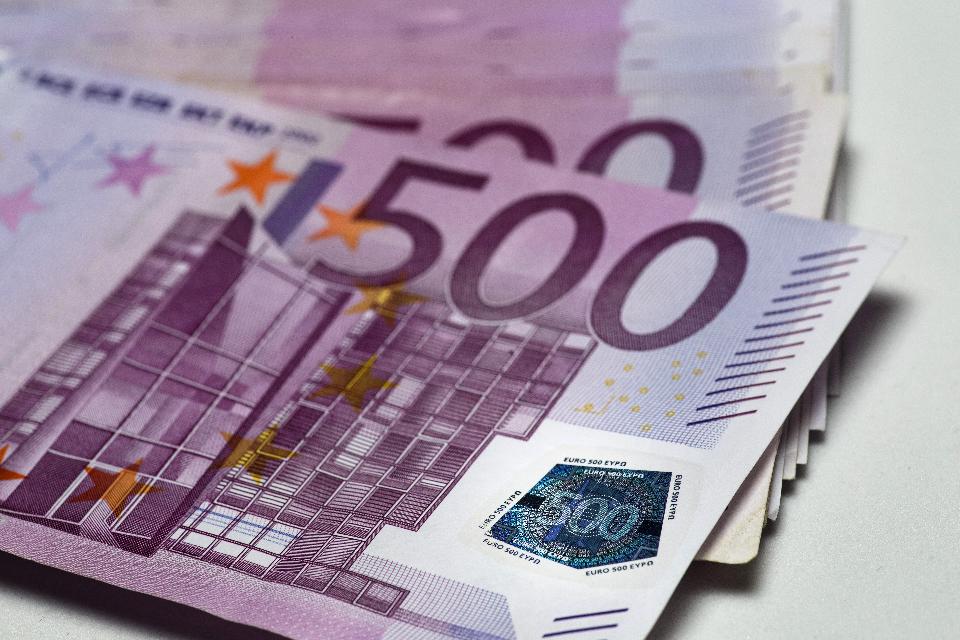The euro slid to its weakest level in nearly a month on Monday, falling as much as 0.3% against the dollar after French President Emmanuel Macron called for a snap legislative vote in the wake of the European Parliament elections.
This political uncertainty coupled with a strong US jobs report, also triggered declines in several Asian currencies.
Macron’s decision to call for an early legislative election came after far-right parties made notable gains in the European Parliament elections, though centrist parties are expected to retain their majority across the European Union.
The announcement caused the euro to retreat, mirroring the fall in French bond futures.
Asian markets responded to the developments with the South Korean won and Malaysian ringgit both slipping.
Also, MSCI’s Asia-Pacific stock index edged lower, although Japan’s Topix index rose following revised data showing that Japan’s economic contraction was less severe than initially estimated.
Markets in China, Hong Kong, Taiwan, and Australia remained closed due to public holidays, leading to lighter trading volumes in the region.
Adding to the market’s cautious sentiment, the yield on 10-year US Treasuries climbed for a third consecutive day. This increase was driven by Friday’s solid US jobs report, which suggested that the labor market remains robust despite high interest rates and inflation.
This data has led to a reassessment of the likelihood of the Federal Reserve cutting interest rates in the near term, easing concerns about an imminent economic slowdown.
“We’re still expecting a soft landing in the States — as long as that’s a scenario, I think Asian markets have upside potential,” said Lorraine Tan, director of Asia equity research at Morningstar Inc., on Bloomberg Television.
Investors are now looking ahead to several key events that could influence market sentiment further.
The Federal Reserve is set to update its interest rate forecasts on Wednesday, which will be closely scrutinized for any indications of future monetary policy adjustments.
The Bank of Japan is also scheduled to make an announcement on Friday, with economists predicting that it will maintain its current policy stance.
Lloyd Chan, a currency strategist at Mitsubishi UFJ Financial Group Inc., said, “Asia markets will take their cue from the FOMC and BOJ meetings, as well as the US CPI data, which will be released just hours before the Fed’s policy rate decision. Asia FX could face volatility amid the rise in US yields.”
The broader geopolitical landscape also remains tense. In the Middle East, Israeli political instability increased as Benny Gantz resigned from the emergency government, calling for elections and criticizing Prime Minister Benjamin Netanyahu’s handling of the conflict with Hamas.
This move leaves Netanyahu more dependent on his right-wing coalition partners.
As the week progresses, markets will also be watching for other significant data releases, including UK wage numbers, China inflation figures, and US consumer and producer price indexes.
These reports will provide further insights into the global economic outlook and potentially add to market volatility.
Overall, the euro’s dip and the broader market reactions underscore the complex interplay of political and economic factors currently influencing global financial markets. As traders digest the implications of these developments, volatility is likely to remain a key theme.

 Billionaire Watch3 weeks ago
Billionaire Watch3 weeks ago
 Startups4 weeks ago
Startups4 weeks ago
 News4 weeks ago
News4 weeks ago
 News4 weeks ago
News4 weeks ago
 Bitcoin4 weeks ago
Bitcoin4 weeks ago
 Naira4 weeks ago
Naira4 weeks ago
 Forex3 weeks ago
Forex3 weeks ago
 Treasury Bills4 weeks ago
Treasury Bills4 weeks ago


























